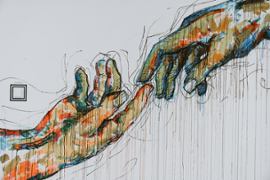Summary
- Since 2020, the demand for treatment addressing gambling-related harm in Great Britain has dramatically increased.
- Millions of people indirectly suffer due to the gambling habits of their friends or family members.
- GambleAware is urging for stronger advertising bans and tighter regulations to safeguard children and minimize harm.
GambleAware is committed to leaving a lasting legacy as it prepares to wind down operations by March 31, 2026. This not-for-profit organization is focused on providing valuable data to guide future efforts in reducing gambling-related harm in Great Britain. Its most recent report sheds light on the growing need for treatment, support, and advice based on requests received over the past five years. Conducted by YouGov, the survey underscores the vital work done by GambleAware and its ongoing commitment to fostering a safer environment for those affected by gambling.
The last five years have seen more people in Great Britain seek help for gambling-related problems
Recent findings have shed light on an alarming rise in those seeking treatment for gambling-related issues. Now, one in three adults who gamble and face risks from it are looking for support and guidance, a leap from one in five in 2020. The survey also highlights that gambling problems can affect not just gamblers, but those around them. Approximately 4.3 million adults in Great Britain are now feeling the impact of a friend or family member's gambling habits. GambleAware CEO, Zoë Osmond OBE, emphasized the severe addiction and disastrous effects that gambling can have on one's life, relationships, mental and physical health, and financial stability. While it's encouraging to see more individuals reaching out for help, Osmond pointed out that this reflects a growing exposure to these issues. To combat this distressing trend, immediate preventive measures are essential. Osmond insists on stronger regulations on gambling advertising to stop depicting it as mere 'harmless fun.' She calls for mandatory health warnings on all gambling ads, tighter controls on digital and social media tactics, and a total ban on promoting gambling at sports venues to safeguard children and young people. She implores the government to intensify efforts, especially as it takes on GambleAware's responsibilities.
Gambling ads need to go, argues GambleAware’s latest survey
The survey delved into how gambling advertisements are impacting children and examined the extent of young kids' exposure to these products. A staggering 91% of people advocate for banning gambling ads on TV and within video games, with 90% eager to see this ban extend to social media platforms as well. GambleAware insists that whatever actions are taken, the government must clamp down on gambling marketing and online content. This is crucial, as these activities have been linked to a high number of children falling into addiction. Earlier in September, GambleAware published another study revealing how influencer marketing and online content expose children to gambling. According to YouGov Associate Director Kate Gosschalk, this recent data is drawn from a significant sample of 18,000 individuals, including those struggling with gambling issues. She highlights, The new insights shed light on gambling harm and show an increase in the number of people seeking support and treatment over the past five years. (





























